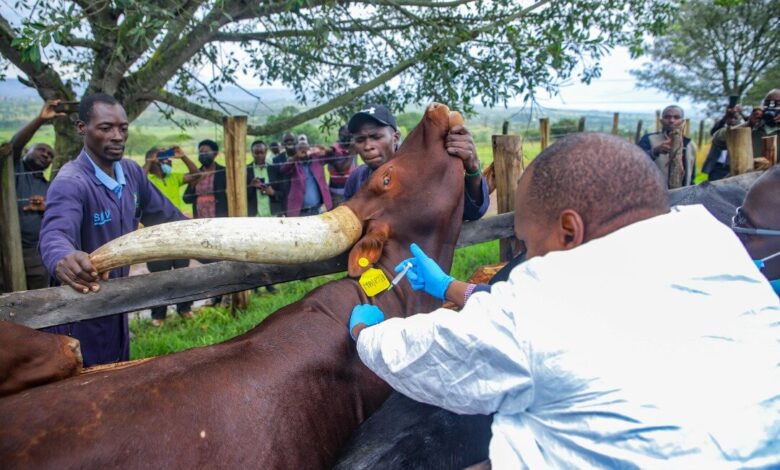Agriculture ministry starts field trials for anti-tick vaccine
According to Tumwebaze, the development of the anti-tick vaccines through the National Agricultural Research Organization is one of the steps taken to control parasites in the animal sub-sector.

The Minister for Agriculture, Animal Industry and Fisheries, Frank Tumwebaze, on Thursday in Mbarara district vowed to position Uganda among model countries fighting ticks.
He was presiding over the launch of the field trials for the Anti-Tick Vaccine developed through the National Agricultural Research Organisation (NARO).
The launch took place at the Mbarara Zonal Agricultural Research and Development Institute in Mbarara. The agricultural ministry said the field trials will be undertaken in Masindi, Ibanda, Apac and Nabilatuk districts.
Tumwebaze referring to Food and Agricultural Organization data said that anti-tick vaccines impact 80% of the world’s cattle population.
According to Tumwebaze, the development of anti-tick vaccines through the National Agricultural Research Organization is one of the steps taken to control parasites in the animal sub-sector.
Tumwebaze said ticks are responsible for the spread of a number of diseases including Lyme disease, Babesiosis, Ehrlichiosis, Rocky Mountain Spotted Fever, Anaplasmosis, Southern Tick-Associated Rash Illness, Tick-Borne Relapsing Fever and Tularemia.
He also noted that the scientists have put the efficacy of the vaccine so far at 88% and the trials will be done in all ecological zones of the country.
According to Dr Yona Baguma, the Deputy Director General of Research Coordination at NARO, vaccines were developed by extraction and isolation of conserved ticks proteins from local ticks collected from the 10 agro-ecological zones of Uganda.
The Permanent Secretary Ministry of Agriculture, Maj. Gen. David Kasura Kyomukama, said they are convinced the Anti-Tick Vaccine will save farmers millions of shillings lost in controlling ticks and loss of animals to tick-borne diseases.






